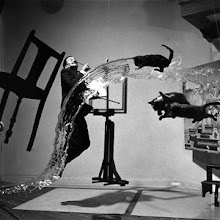
(Seriously, Monorails?)^
The
Venus Project and the concept of a
"Resource Based" economy I've heard it said politics isn't a battle of what's ideal, but what is possible. I have this view point not out of Skepticism, (although I can be a Skeptic, many in my generation are) but of what is practical. A complete reformatting of our economy from the ground up simply couldn't happen here. So many issues would arise from destroying entire life's savings to the destabilization of economy. Yes, our economic system is fairly unstable at the moment, cycling constantly between boom and busts after Industry bubbles form and break. However, I do believe when there is proper taxation and stronger oversight and regulation the capitalistic system, it could still work to benefit all. A resource based economy is quite similar to just a larger scale of the gold standard. Arguably it is a better basis for money than gold, as resources actually do have practical value. However it fails to account for the value of human and mechanical labor, which makes up the vast majority of all major economies. I think GDP could be an accurate measure of our actual economy if we completely reformatted the federal reserve (and integrate it with the government), stopped printing money, fixed Wall Street and the Finance Industry, and started knocking out debt whilst fighting inflation. It's a lot of things to do, but I think such high minded, idealistic concepts that do away with human centric economy (which is absurd) arises out of a disillusionment with money.
Economic politics aside, the concept behind the Venus project seems to be with the best intentions, but the aesthetic is ludicrous. It looks as if some fungineer from Disney tried to design a tacky futureworld city back in the 1960's. The concept isn't bad, but the rootshock, linearity, and lack of diversity in the layout and design of the buildings would make it a breeding ground for poverty. Brazilia had a futuristic efficient layout when it was built, but it resulted it large masses of unused land and huge bouts of poverty.
I am quite passionate about the politics behind city design every since I took an Urbanization class here at Tech. This class taught me the four major points of successful city design: Mixed Use of buildings, short city blocks, concentration of people, and a diversity of aged buildings. This city fails to deliver on efficiency of space (although it does have an efficient concept for city services: trash, sewer, etc.), short city blocks, mixed use, and the all important older buildings. I would say that we need a good reason to build up a new city, especially in dire economic times as these. We certainly couldn't do this to any existing cities, and there is a real question whether that city layout could actually work. The implication behind the Venus Project being that if we test this out, that city design could create the social change desired. (admittedly Zeitgeist was all over the place about their concept of human psychology and how to motivate it differently) Even if you create the test city and somehow achieve a complete reformatting of the economy, people will still game the system. There is way to much trust in human nature on behalf of the project, and a bit of naiveté about the complexity of human behavior.
 Jason Farman "The Alienation Effect in Violent
Jason Farman "The Alienation Effect in Violent






